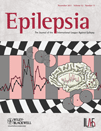The role of ketogenic diet in the treatment of refractory status epilepticus
Summary
Ketogenic diet (KD) is known to be effective in intractable epilepsy. However, the role of KD in refractory status epilepticus (RSE) has not been well described. The aim of this study is to explore the role of KD in patients with RSE. We retrospectively reviewed the medical records of four children and one adult with RSE between October 2006 and August 2010. All presented with status epilepticus (SE) that was presumed to be associated with viral encephalitis. After we failed to control the seizures with standard measures for SE, we tried KD. The overall seizure frequency decreased to <50% of baseline in median eight (1–19) days. At one month of KD, two patients were seizure-free, one patient showed >90% seizure reduction, and the others had >75% decrease without generalized seizures. With improvement in the RSE, we were able to taper the antiepileptic drugs (AEDs) and wean patients from prolonged mechanical ventilation. The adverse events of KD in RSE included aspiration pneumonia, gastroesophageal reflux, constipation, and hypertriglyceridemia. Those results demonstrate that KD can be a valuable therapeutic option for patients with RSE.




